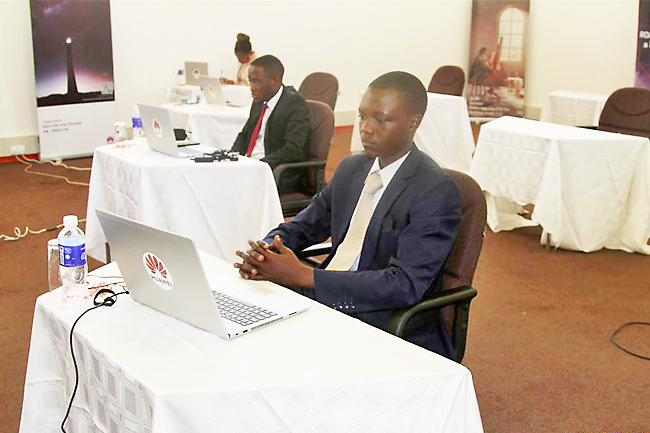
Ten outstanding Information Communication Technology (ICT) students drawn from Zimbabwe’s universities last Friday successfully completed this year’s edition of Huawei’s Seeds for the Future Programme.
The five-day programme, which was held online for the first time due to the global COVID-19 pandemic, consisted of live-streamed sessions, compulsory courses, elective courses and access to additional resources for self-learning about the Chinese culture.
The programme, which focusses on bridging the gap between the academia and industry, is Huawei’s corporate social responsibility initiative under which the global telecoms giant cooperates with local universities in order to enhance technical skills transfer to students.
The Seeds for the Future Programme is run in partnership with Zimbabwe’s ICT Ministry, the Ministry of Higher and Tertiary Education, and TelOne, Zimbabwe’s largest telecommunications operator.
In an interview with Xinhua at the graduation ceremony held at TelOne Centre for Learning (TCFL) in Harare, TCFL General Manager Sharai Dube praised Huawei’s unique approach to corporate social responsibility which focusses on empowering local communities.
“So traditionally corporate social responsibility whereby people are given donations, money donations, they use it today and tomorrow they will still need more,” said Dube. “In this case, we see that the students basically are being trained and their skillset basically is being improved so that they can be able to use it in the future for their own betterment.”

She said not only participants will benefit, but their respective institutions and the country will benefit as well.
“We might have worked with 10 students but the impact might actually cascade to more than just the 10 students, or the 10 families that are represented here today,” she said.
The best performing student, Dumisani Mukuchura, a telecommunications engineering major at the National University of Science and Technology (NUST), said the programme had been a unique experience.
“This experience has been really amazing because with the pandemic the world is facing, Huawei has managed to make everything accessible online,” Mukuchura said.
“They used various examples to teach us about future technologies, and I think that has equipped me and other students that have participated to move forward, to tackle forward everything that has been put in our way and I thank them for that,” Mukuchura said.
Douglas Tanyanyiwa, a software engineering student at TCFL, said ICT has fast become indispensable to our daily lives, and its extensive use can solve many challenges facing developing countries.
“I think with ICT we can see from, let me take for example, the global pandemic, it has really shown us how digitalisation can improve things within the country,” Tanyanyiwa said.
“So you look at the things that we have learnt, like Artificial Intelligence, where you can have the automation of things. So where you would have workers who cannot go to jobs, industry is shutting down, you could employ Artificial Intelligence to do that, and that would resolve some of the things that we would be facing with things like this,” he said.
Karen Chieza, an ICT student from Aruppe Jesuit University (AJU), said the programme has been a mind opener.
“My favourite part I learnt is about Artificial Intelligence. If we had things like intelligence health here, what happens is that you can consult a doctor, you won’t have to move out and spread the virus. So I think applying things like that in Zimbabwe and many other countries would really bridge a gap,” she said.
Tawana Gawaza, an ICT student from AJU, said Zimbabwe had a lot to learn from Huawei’s developmental experience.
“I think Huawei also showed us, within the time they grew, it was just 30 years, we can do the same and grow at a faster pace,” she said.
Huawei has over the years played a significant role in bridging Zimbabwe’s ICT gap.
Last year the telecoms giant partnered with the University of Zimbabwe (UZ) to launch the first Huawei Certified Network Graduate (HCNG) programme for science, technology and engineering students at Zimbabwean universities and colleges.
The programme is geared towards enhancing professional skills among graduates through an industry-based curriculum.






